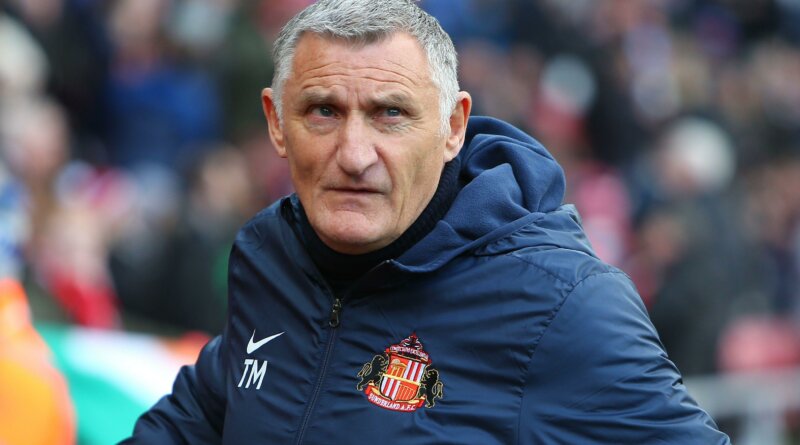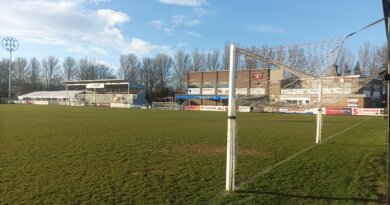Sunderland’s 2023-24 season review: Tony Mowbray decision proved the catalyst for season’s unravelling
Two wins from their last 15, 22 league defeats in total (the third highest in the division) and six points from relegation.
In stats, the end to Sunderland’s season looks pretty bleak, and that is because it was.
Bleak, miserable and uninspiring.

For the early weeks in the campaign, it looked like the season was heading in a totally different trajectory.
An opening-day defeat to the eventually-remarkable Ipswich Town had its merits, before a real sense of anxiety inched in early on as an EFL Cup exit to League Two outfit Crewe and second successive league defeat – this time at Preston, where the Black Cats had ravaged only a few months previous on a memorable afternoon – proved to be the first hurdles of the campaign.
However, for a while, Mowbray had this youthful side playing with an energy and flair that, only a couple of months down the line, would prove non-existent, and getting a tune out of players that struggled upon December’s major turning point.
The day of the season, though, came at the very start of September.
Recently-relegation Southampton, full of Premier League quality and only a day on from stealing the Black Cats’ Ross Stewart, headed to the North East and were turned over in the Wearside sun.
It was the afternoon where it felt like anything was possible: the Saints, as much of a Premier League side as you get in the second-tier, were put to the sword in a way only Sunderland could.
It was counter-attacking, it was long-range screamers, it was Jewison Bennnette’s sensational pirouettes and it was a teenage dream for Chris Rigg.

If you’re looking for a day in this season when there was hope, this would firmly be your choice.
One defeat in eight matches placed Mowbray’s side within the top four, and with Jack Clarke tearing defences apart at QPR, Blackburn and Sheffield Wednesday, the early signs were signalling in the right direction.
That was until the Tees-Wear derby/rivalry, however you perceive it, when the cracks started to form in Sunderland’s season.
A controversial red card to Dan Neil on the stroke of half-time gave Middlesbrough an advantage that they took full opportunity of in a 4-0 battering, before the Black Cats would return from October’s international break with back-to-back defeats.
A mini resurgence saw Mowbray’s side move back into the play-offs, but after a three-game losing spell and Mowbray’s recruitment discussions beginning to be made in the public eye, the season was arguably broken into two.
The sacking of such a highly-respected figure in the dressing room split opinion on the outside, but as form began to slip, the hierarchy’s aspirations of a “high performance culture” coincided.
But, despite being the buzz word over the course of the campaign for supporters, what does it actually mean?
Supporters have yet to be reassured that the club’s jargon has its merits, and as the two-week appointment for Michael Beale showed, the importance of having a succession plan in place is key.

(Photo by Craig Cresswell/News Images)
On the pitch, though, despite two magnificent home performances against West Brom and Leeds under Mike Dodds, Beale’s first match began in the worst possible way.
A 3-0 home defeat to Coventry led to boos around the Stadium of Light and chants for former boss, Mowbray, to return to the dugout, as the hashtag ‘#BEALEOUT’ gathered momentum week after week.
The derby debacle of the Black Cats Bar being decorated in Newcastle United slogans and colours added fuel to the already scorching fire that had been ignited with the departure of Mowbray, and after a run of only 14 points from a possible 36, Beale became the shortest serving Sunderland manager/head coach.
What Beale began continued heavily into Dodds’ third interim stint, as the club embarked on an “unacceptable” seven-game winless run.
In the end, Dodds only picked up two wins – both coming on the road at Cardiff and West Brom – as the club limped towards the end of the season in purely miserable style.
The Black Cats ultimately ended the campaign in 16th, six points above the relegation places, and having only scored six goals in their last 12 matches.

It speaks of a problem that Mowbray, Beale and Dodds have all found over the course of the campaign, and an issue that needs to be addressed in the summer transfer window.
That, though, is just one of the concerns that need answering as the club head into a pivotal summer where fans need to see answers.
The first of those will be who begins the season in the dugout, and then the club will look at areas of recruitment; the first being how Sunderland can score goals next season, especially if the likely departure of Jack Clarke is given the go-ahead in the next few months.
However, the next 14 weeks before the 2024-25 season begins is huge for the club and its hierarchy.
They know that only a few less points and they may have been in a relegation dogfight this time around, but that if they recruit well, they have a very strong core of the squad to build around and may have a starkly-different season next year.
With the spotlight intensified, though, the summer’s key decisions need to be dealt with correctly, and maybe the club can build something stronger next season.




